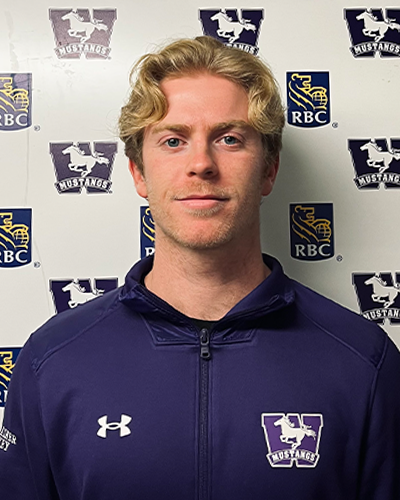Riley Cousins, fourth-year student, Bachelor of Science

Regional Winner, Nursing, Midwifery & Allied Care category
As a competitive athlete throughout his life, Riley Cousins has always been interested in sports performance and the science behind its optimization. When an opportunity arose to participate in related research for a physiology class at Western, he jumped at the chance.
That project culminated in a paper, entitled “Determination of physiological equivalence between CP3-min and FTP20 power output tests”, which was recently selected as a regional winner for The Global Undergraduate Awards, a pan-disciplinary competition that recognizes excellence in undergraduate coursework.
“All my life, I have consistently been looking for methods or tests that athletes can use to help perform their best. So, when the chance to write a paper and do some research on novel exercise tests came up in Western professor Daniel Keir’s Exercise Physiology class, I was excited to get to work in an area that I was interested in and applicable to my own life,” said Cousins, who is in his fourth year of a Bachelor of Science degree with an Honours Specialization in Kinesiology.
In the paper, Cousins examined whether critical power and functional threshold power – which are currently measured by two relatively novel tests measuring the same metabolic boundary and the upper limits of sustainable human performance – are actually equivalent measures.
He says although this was a basic research study, he gained important preliminary data that shows that the two tests are not equivalent and should not be used as equivalent delineations between sustainable and unsustainable exercise.
“This information is important for athletes because it guides them to select the appropriate test to determine their maximum power output before exercise becomes unsustainable. This power output can then have dramatic implications on the intensities that they train at as well as giving them insight into the maximum intensity they can optimally exercise at during competition before they begin to fatigue and burn out,” he said.
Cousins says applying to the Undergraduate Awards gave him an opportunity to showcase coursework he was proud of and have it evaluated by experts from around the world.
“My paper was a new challenge that required lots of work throughout the semester and, by the time I finished it, it was something that I was genuinely proud of. When the opportunity came to apply for this competition, it seemed like a no-brainer to submit my paper and see how it compared against my peers. Overall, it was really gratifying to know that my hard work and many hours paid off, and to have my paper gain international recognition was a huge bonus.”
As he looks to the future, Cousins says he plans to continue in the field of sport performance and physiology in some capacity.
“Whether I am in sports medicine, physiotherapy, or research, I hope to continue looking for ways to help athletes stay at the top of their game and perform their best.”






